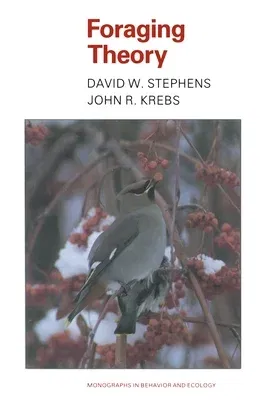David W Stephens
(Author)Foraging TheoryPaperback, 21 March 1987

Qty
1
Turbo
Ships in 2 - 3 days
In Stock
Free Delivery
Cash on Delivery
15 Days
Free Returns
Secure Checkout

Part of Series
Monographs in Behavior and Ecology
Part of Series
Monographs in Behavior and Ecology, 1
Print Length
262 pages
Language
English
Publisher
Princeton University Press
Date Published
21 Mar 1987
ISBN-10
0691084424
ISBN-13
9780691084428
Description
Product Details
Authors:
Book Format:
Paperback
Country of Origin:
US
Date Published:
21 March 1987
Dimensions:
23.47 x
15.47 x
1.6 cm
ISBN-10:
0691084424
ISBN-13:
9780691084428
Language:
English
Location:
Princeton
Pages:
262
Publisher:
Weight:
376.48 gm